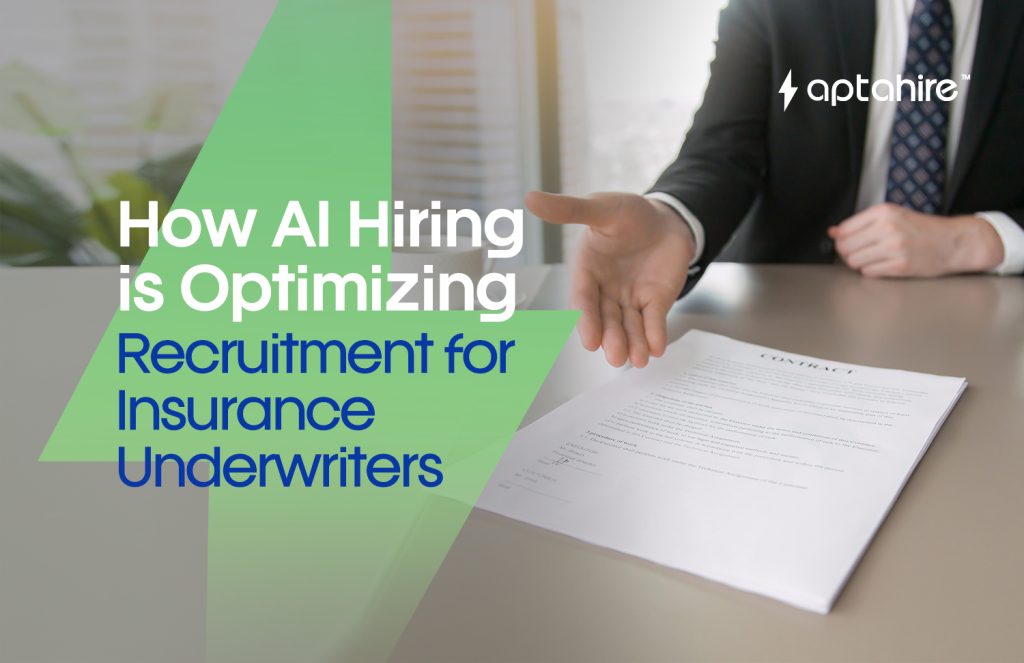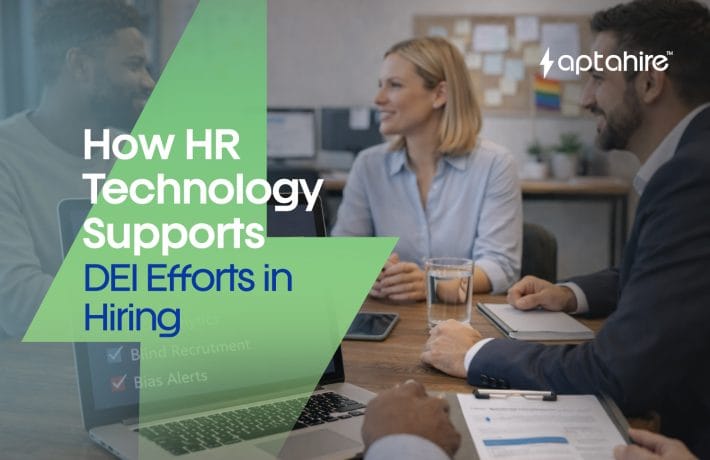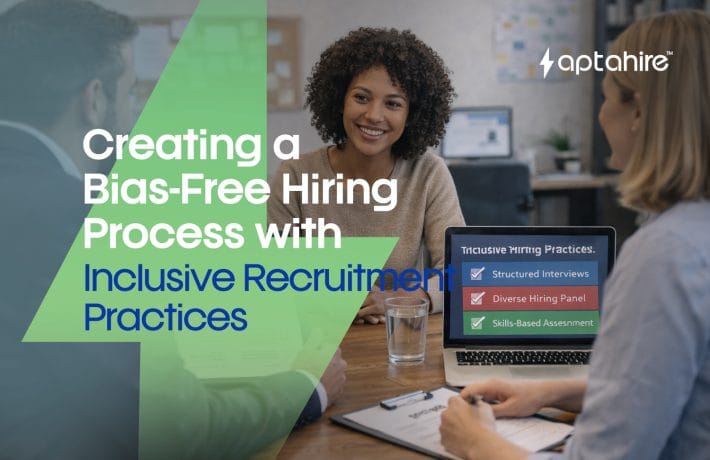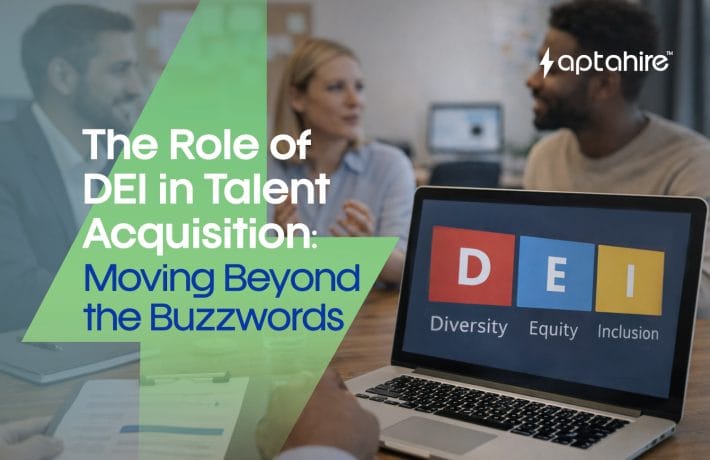How AI Hiring is Optimizing Recruitment for Insurance Underwriters

In the fast-paced world of insurance, precision and efficiency aren’t just desired, they’re essential. Among the key roles in this domain are insurance underwriters, whose assessments determine the risk and validity of insurance applications. With hiring needs becoming more dynamic and competitive, AI is transforming how insurance underwriters are recruited, making the process faster, smarter, and far more accurate.
This blog will explore how AI-driven hiring is revolutionizing the recruitment of insurance underwriters, reducing human bias, predicting candidate success, and creating better alignment between job requirements and talent.
Understanding the Role of an Insurance Underwriter
Insurance underwriters play a vital role in assessing risk and determining premiums, policy terms, and eligibility. Their decisions impact the insurer’s profitability and the customer’s experience. This makes hiring underwriters a high-stakes task that demands precision, analytical ability, and compliance knowledge.
Traditional hiring methods, CV screenings, interviews, and manual assessments, often fall short of evaluating the nuanced skill set required for underwriters. That’s where AI steps in.
Why AI is a Game-Changer in Underwriting Recruitment
1. Automated Screening at Scale
AI-powered platforms can screen thousands of resumes in seconds, filtering out under-qualified applicants while identifying top candidates based on experience, education, and relevant skills. For example, if a candidate has worked with underwriting tools like Guidewire or has specific experience with life insurance risk assessment, AI can flag them instantly.
This not only saves HR teams countless hours but also ensures consistency and fairness in initial evaluations.
2. Behavioral and Cognitive Analysis
Modern AI hiring platforms go beyond resumes, they analyze speech patterns, facial expressions, and body language during video interviews. For underwriters, who must be detail-oriented, analytical, and confident decision-makers, AI can evaluate traits like critical thinking, attention to detail, and emotional stability.
Tools like natural language processing (NLP) can assess how well a candidate articulates complex concepts, handles hypothetical scenarios, and communicates under pressure, crucial attributes for an underwriting role.
3. Predictive Performance Matching
One of the biggest advantages of AI in recruitment is its predictive capabilities. AI models trained on data from top-performing underwriters can compare new candidates against these benchmarks to predict on-the-job success.
This helps insurers not only find candidates who look good on paper but who will actually thrive in the role, reduce turnover, and deliver results.
4. Bias-Free Decision-Making
AI helps reduce unconscious human bias by evaluating candidates solely based on data-driven insights. This means factors like gender, age, ethnicity, or accents do not skew the recruitment decision, ensuring a diverse and meritocratic hiring environment.
For instance, two candidates with similar qualifications but different backgrounds would be assessed purely based on relevant competencies and potential.
5. Real-Time Candidate Feedback
AI tools can also provide instant feedback to candidates on their interview performance, areas of improvement, and next steps. This makes the recruitment process more transparent and engaging, especially important in sectors like insurance, where reputation and communication are key.
Case in Point: AI Transforming Insurance Hiring
A leading global insurer recently integrated an AI hiring platform to streamline the recruitment of underwriters across Southeast Asia. Within six months:
- Time-to-hire dropped by 47%
- Screening accuracy improved by 65%
- Retention rate increased by 30%
By leveraging AI, the company aligned underwriter recruitment with long-term performance metrics and saw improved decision-making within underwriting teams.
Key AI Tools Used in Underwriter Hiring
Here are some popular AI tools and platforms that are reshaping how insurance firms recruit underwriters:
| Tool | Functionality |
| HireVue | Video interviewing + AI behavioral analysis |
| Pymetrics | Neuroscience-based cognitive and emotional trait assessment |
| X0PA AI | Predictive hiring and job matching using AI + ML |
| Eightfold.ai | AI-driven talent intelligence for sourcing and matching top candidates |
| ModernHire | Combines structured interviews with AI scoring |
The Future of AI in Underwriter Recruitment
As AI hiring technology becomes more advanced, we can expect:
- Customized interview questions generated in real-time
- Role simulations for live underwriting assessments
- Integration with LMS platforms to recommend personalized onboarding paths
Eventually, AI will not only optimize hiring but also continuously guide career development, ensuring that every underwriter recruited stays sharp, compliant, and high-performing.
Conclusion: A Win-Win for Both Employers and Candidates
AI in the recruitment of insurance underwriters is not just a tech trend, it’s a strategic shift that’s elevating talent acquisition to new heights. It enables companies to hire faster, smarter, and fairer while giving candidates a transparent and personalized experience.
In an industry where risk is everything, AI hiring is reducing the risk of bad hires, ensuring that the right underwriters are placed in the right roles at the right time.
FAQs
1. How is AI used in hiring insurance underwriters?
AI is used to screen resumes, assess candidates’ technical knowledge, evaluate personality traits, and even conduct initial video interviews. It ensures a faster, unbiased, and data-driven hiring process that aligns candidates’ skills with underwriting job requirements.
2. What are the key benefits of AI in underwriting recruitment?
AI reduces time-to-hire, improves quality-of-hire, and ensures compliance by eliminating human bias. It helps recruiters focus on strategic tasks while automating repetitive and analytical processes.
3. Can AI evaluate risk-analysis skills required for underwriters?
Yes, AI can analyze test responses and simulated scenarios to assess a candidate’s risk evaluation skills. It can also compare past performance data and behavioral patterns to determine underwriting proficiency.
4. Does AI hiring ensure better candidate-job matching?
Absolutely. AI uses natural language processing and machine learning to analyze job descriptions and resumes to match candidates with the best fit based on skill, experience, and behavioral fit.
5. Is AI hiring fairer than traditional recruitment methods?
AI eliminates unconscious bias by focusing purely on data-driven metrics. When designed ethically, it ensures a transparent and fair recruitment process based on merit.
6. What type of AI tools are commonly used in hiring for insurance roles?
Common tools include resume parsers, AI-driven video interview platforms, personality assessment engines, and predictive analytics systems. These tools help shortlist and assess candidates efficiently and fairly.
7. Will AI replace human recruiters in the insurance industry?
No, AI is here to assist, not replace. Human recruiters are essential for final decisions, cultural fit assessment, and relationship-building, AI just enhances their productivity and decision-making.



